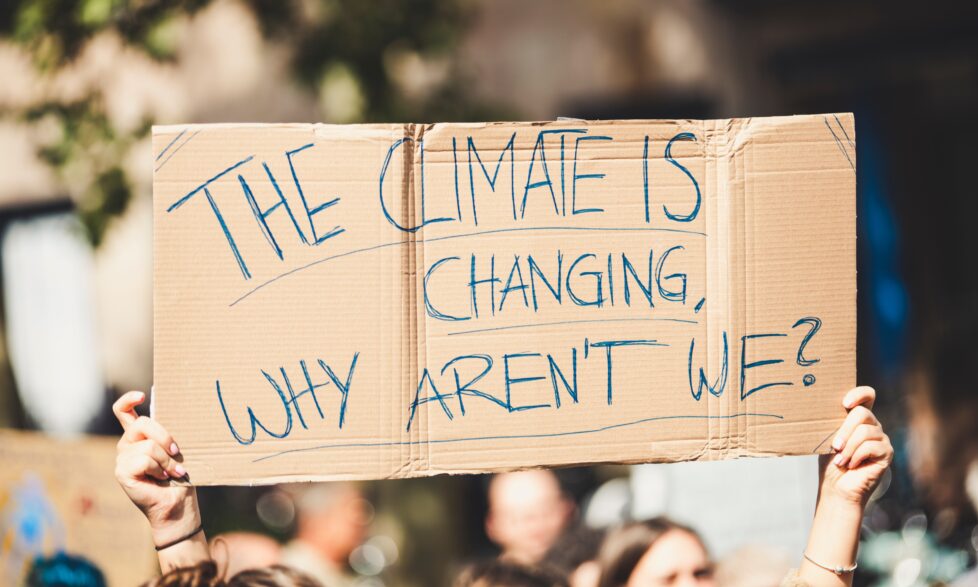6 inspiring local authorities tackling the climate and ecological emergency
Globally, 820 million people live in an area where a climate emergency has been declared - that’s some 1,765 jurisdictions at the latest count from rural parishes and villages to district, town and city councils across 30 countries.
This is fantastic because local authorities are central to driving climate action – they’re able to influence infrastructure like transport, planning and food systems and have unique insight into the needs and lives of their residents.
At Bioregional we’ve been working with local government bodies to make sustainable change for decades. We now want to scale up our work supporting towns, cities and regions around the world to create ambitious sustainability action plans using our One Planet Living® framework.
As part of this, we’ve been exploring some of the exciting work that local authorities are already doing, so we can share their stories and inspire others. A huge thank you to Lauren Allington, our intern, as it's her in-depth research shared in this blog.
Check out the local authorities already taking ambitious steps to reduce carbon emissions and cut down on waste, while also addressing other One Planet Living principles like health and happiness. Could you replicate any of them?
- Exeter, UK: Passivhaus standards are creating warmer, cheaper-to-run council homes
Over the past decade, Exeter City Council has built more than 100 council houses, 18 flats and 20 social houses to Passivhaus standards. These use high quality insulation, airtightness and heat recovery systems to drastically reduce the need to use energy for heating and cooling.
This also means that residents enjoy happier, healthier lives in warm, comfortable homes year-round. They also benefit from significantly lower energy bills, which reduces the likelihood of them falling into rent arrears. Rose Mason, a tenant, says: “It keeps me beautifully cosy in the winter and if it’s very hot and you walk in in the summer, it’s lovely and cool.” - Enfield, UK: district heating is tackling fuel poverty in London
Since 2012, Enfield Council has owned and operated its own energy company, ‘Energetik’, which will eventually run 4 district heat networks to 15,000 homes across the borough. These supply homes in high-density areas with heating and hot water from a central heat source, reducing the need for individual gas or oil boilers.
So far there are two heat networks supplying reliable, lower-cost, and environmentally friendly heating and hot water to residents. Energetik estimates that the carbon footprint for heating in homes connected to one of its networks will be reduced by up to 80%. And because the company is council owned with no shareholders, it has no need to make profits. So it can pass on low-priced energy tariffs to customers, addressing fuel poverty. - Sydney, Australia: working with residents to enable low-energy, low-cost living
The City of Sydney is ambitiously aiming for net-zero carbon by 2040. One way it aims to achieve this goal is by working with people living in its high-density communities.
Nearly three-quarters of Sydney’s residents live in apartment buildings, contributing to more than 10% of the city’s greenhouse gas emissions. Since 2011, the City of Sydney has run the free ‘Smart Green Apartments’ programme which provides apartment block residents and managers with sustainability assessments, technical advice, grant access and networking to help reduce carbon emissions and improve energy efficiency.
Since it launched, ‘Smart Green Apartments’ has worked with over 21,000 residents, with the city seeing energy consumption reductions of 30% and cumulative cost savings of $1.5 million for Sydney residents. - Kamikatsu, Japan: engaging citizens to create a zero-waste town
Before 2003 the Japanese town of Kamikatsu, like many in the country, incinerated most of its waste, emitting toxic greenhouse gases, polluting water supplies and damaging the fragile ecosystems in the region.
Acting urgently, the town became the first municipality in Japan to introduce a zero-waste policy. The policy includes subsidising raw garbage processors for composting waste in homes and introducing a comprehensive sorting system (up to 45 types of waste in 13 categories). The recycling system also works with local manufacturers, which make products from recycled materials. This brings in revenue to support the costs of disposing the small amount of waste that cannot be recycled.
This detailed waste management system means the town now recycles over 80% of its waste! - Volta Redonda, Brazil: cross-sector collaboration is turning waste oil into biodiesel
The popularity of fried food means there’s a lot of waste cooking oil in Brazil, much of which is improperly disposed of. For every 1 litre of oil disposed of in the rainwater drainage system, 1 million litres of freshwater are polluted.
As part of the ‘Environment of Volta’ project, in 2007 the Municipal Government of Volta Redonda supported the construction of a biodiesel power plant and the creation of the ‘Eco-oil’ programme.
As well as raising awareness in schools about the disposal of cooking oil, Eco-oil collects cooking oil from collection points at schools in the city and sells it to the local steel company, which uses the oil to create biodiesel. Transport in Volta Redonda creates 47% of the city’s carbon emissions so the use of biodiesel, which is notably less polluting than traditional fuels, is an important step in reducing the city’s overall carbon impact. - Gloucestershire, UK: behaviour change campaign reducing disposable nappy use
Disposable nappies contribute to approximately 3% of household waste in the UK and were costing Gloucestershire County Council £100,000 a year to manage. The council realised that supporting local people to transition to cloth nappies could reduce waste and the associated pollution, as well as its costs.
The Real Nappy campaign in Gloucestershire;
- offers a £30 money-back voucher to parents buying real nappies
- organises demonstration and education sessions for new parents
- provides a nappy loan system to allow parents to test the nappies.
The campaign has been successful in persuading 762 people in the county switch to real nappies (by 2016), with 75% of participants reporting ‘no issues’ with their decision to switch.
Let us know if you’re working for a local authority that’s working on an exciting project to tackle the climate and ecological emergency via social media.
Check out our ACTION planning service for local authorities to see how we can help you tackle the climate and ecological emergency.




